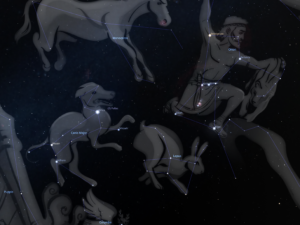Hey there! Today, we’re going to talk about the phrase “Dog days of winter”. You might have heard this phrase before, but do you know what it really means? Let’s dive in! The phrase “Dog days of winter” is a common expression used to describe the period of winter that feels particularly long and uneventful. It’s a time when the cold and darkness seem to drag on endlessly, leaving many people feeling gloomy and uninspired. But where does this phrase come from, and what does it really mean?
Have you ever felt like winter just never seems to end? That’s where this phrase comes from. The “dog days of winter” refers to a period of time during the winter season that feels particularly long and dreary. This time can vary depending on where you live, but it typically falls somewhere between mid-January and late February. During this period, the weather is often cold and cloudy, and there’s not much to do outside. It can be a challenging time for many people, but understanding the origins of the phrase might help you get through it.
Now, let’s break down the phrase a little bit more. The word “dog” here doesn’t actually refer to our furry friends, but instead comes from the ancient Greek and Roman belief that the star Sirius, also known as the “Dog Star”, played a role in creating the hottest part of summer. The ancient Greeks and Romans believed that the star Sirius was the cause of the intense heat of the summer months, and they associated it with the constellation Canis Major, or “Big Dog”. They believed that the dog days of summer were a time of danger and disease, and they associated the Dog Star with these negative qualities.

So, what does the Dog Star have to do with winter? Well, because of the way the Earth’s orbit works, Sirius is actually visible in the winter sky for a short period of time. This period of time coincides with the “dog days of winter”, which is why the phrase uses the word “dog”. While the dog days of summer are associated with heat and danger, the dog days of winter are associated with cold and dreariness. The appearance of the Dog Star in the winter sky is a reminder that even in the darkest and coldest of times, there is still some light and warmth to be found.
But wait, there’s more!
The phrase “dog days” actually has a much longer history than just winter. In ancient times, it referred to a specific period of time in the summer when Sirius rose and set with the sun, causing extreme heat and humidity. People believed that this time was associated with bad luck, madness, and even illness. They also believed that dogs were more likely to go mad during this period, hence the association with the Dog Star. The dog days of summer were a time of caution and fear, and people would take special measures to protect themselves from the negative effects of the heat and humidity.
So, when we use the phrase “dog days of winter”, we’re actually tapping into a rich history of beliefs and superstitions about the stars and the natural world. The phrase reminds us that even in the darkest and coldest of times, there is still hope and a reminder of the warmth and light that will eventually come. It’s a way to acknowledge the difficulties of the winter season while also recognizing that they are temporary. By understanding the origins of the phrase, we can gain a deeper appreciation for the complexity and beauty of language and the natural world.

In conclusion, the phrase “dog days of winter” has a rich history that dates back to ancient times when people attributed the rising and setting of the Dog Star, Sirius, with extreme heat and humidity during the summer season. The term was also associated with bad luck, madness, and illness. Over time, the phrase “dog days” came to be used in different contexts, including winter, to describe a period of time that feels particularly long and dreary.
By understanding the origins of this phrase, we can appreciate how language and beliefs evolve over time and how they shape our perception of the world around us. The use of the word “dog” in the phrase “dog days of winter” may seem puzzling at first, but once we understand its ancient roots, we can see how the phrase connects us to the rich tapestry of human history.
So, next time you find yourself in the depths of winter and feeling like the season will never end, remember the Dog Star and the long history of beliefs and superstitions that have shaped our language and culture. The phrase “dog days of winter” may be a simple expression, but it is one that holds a deep and fascinating meaning.
